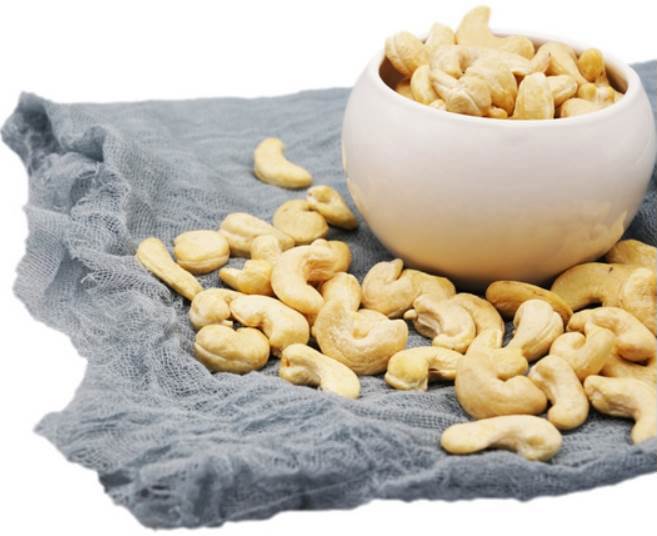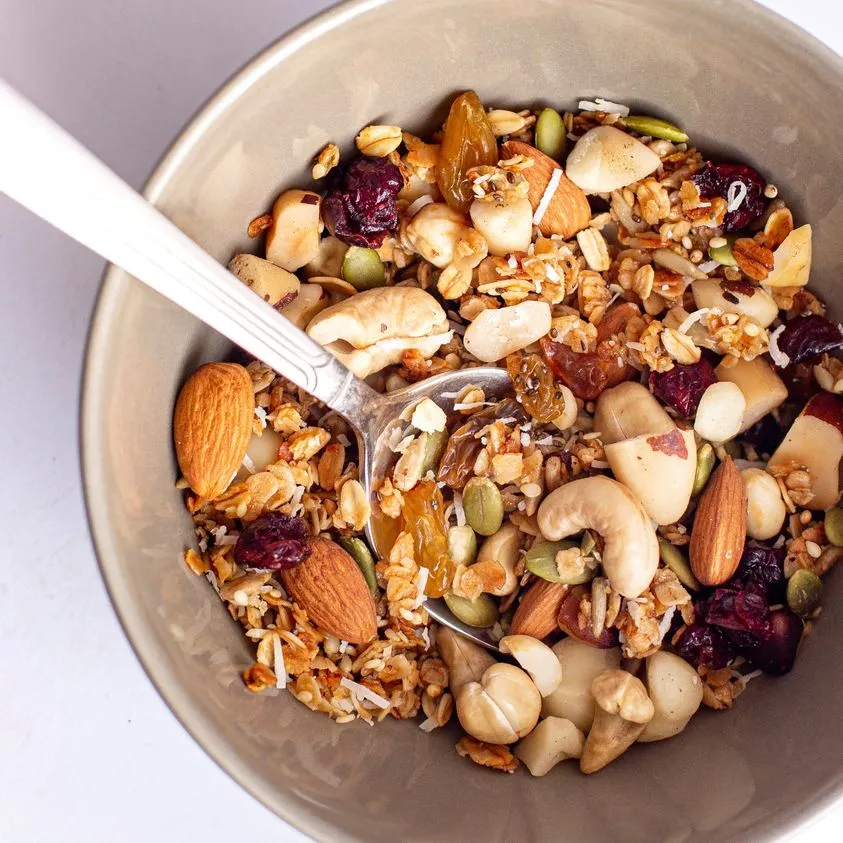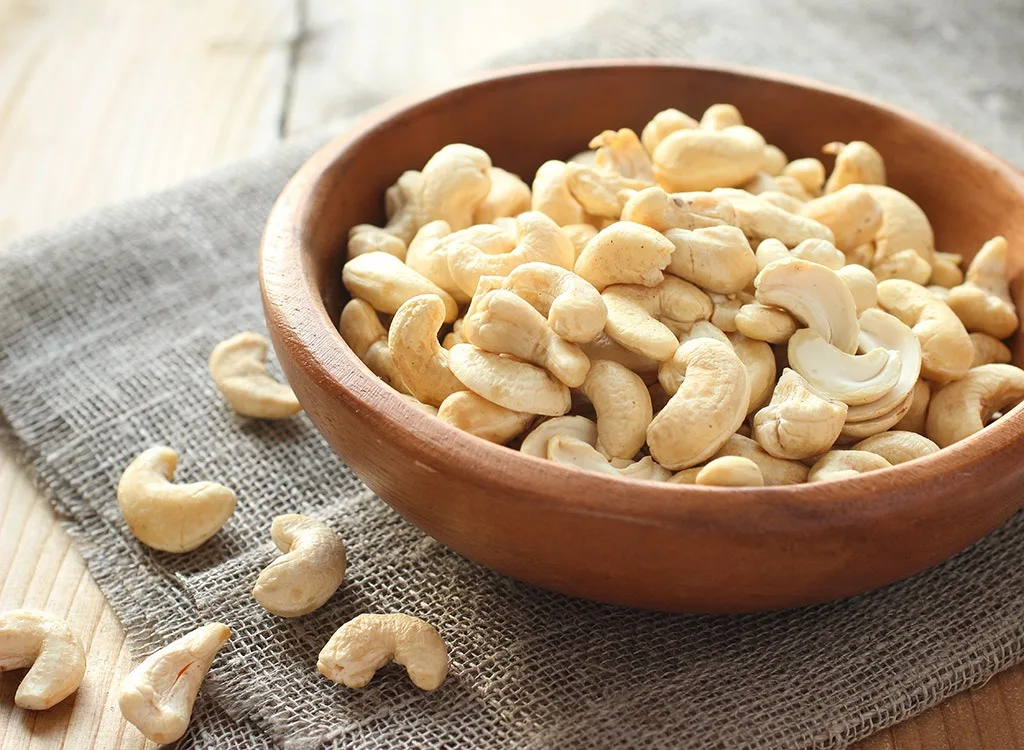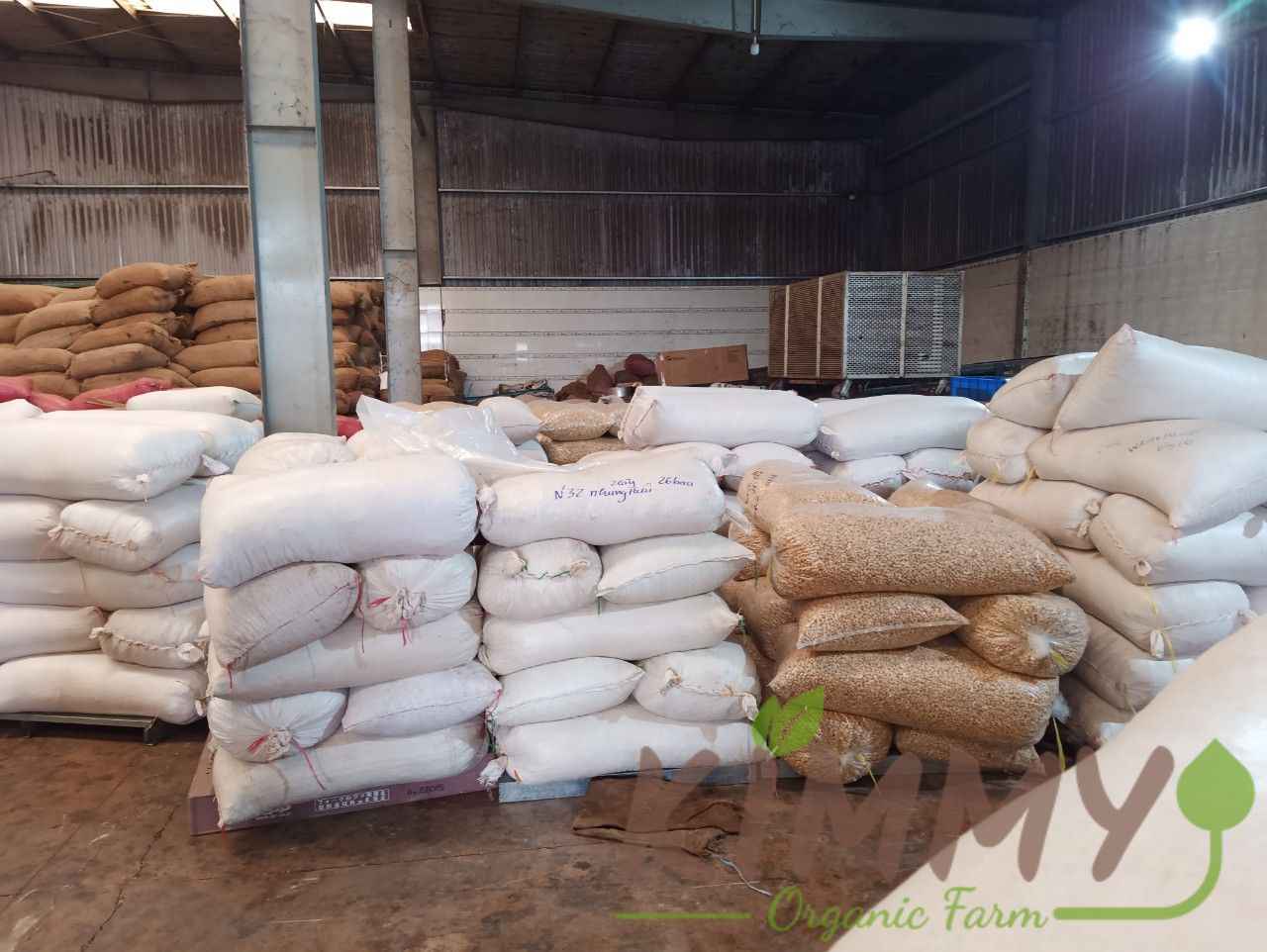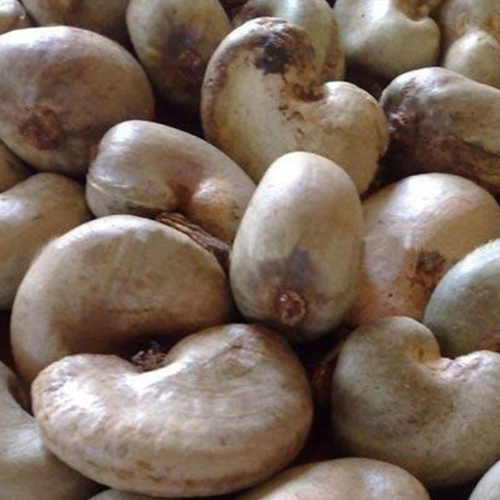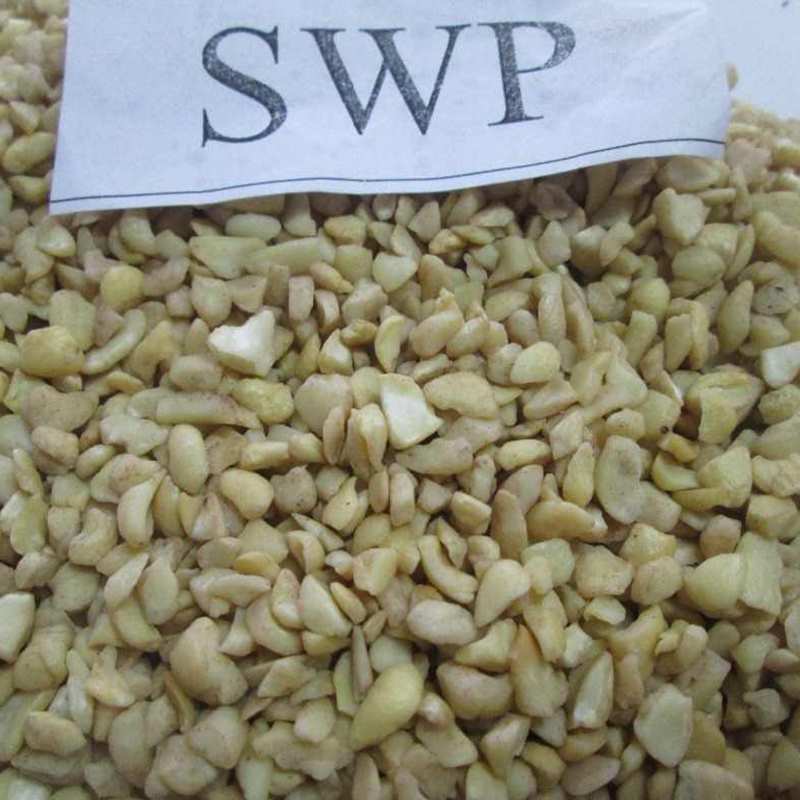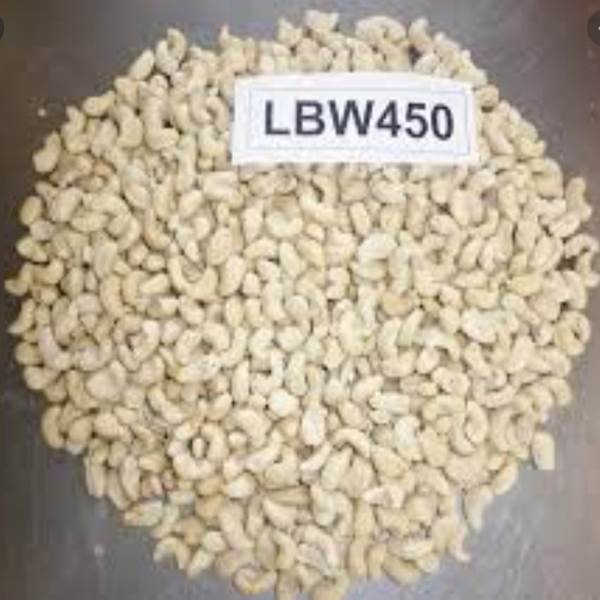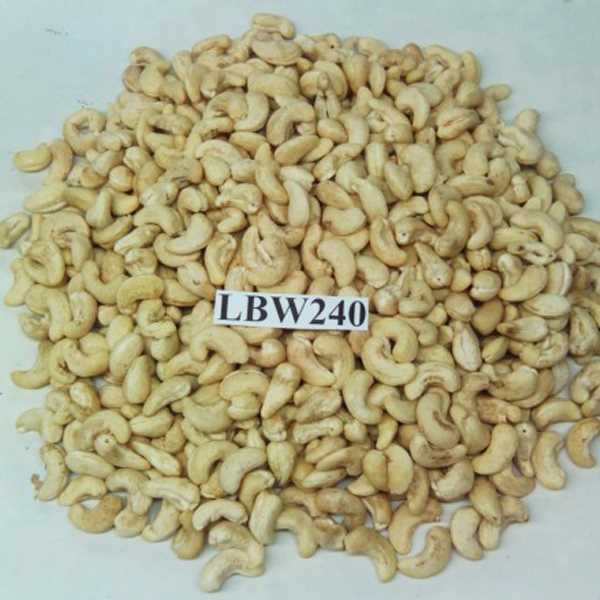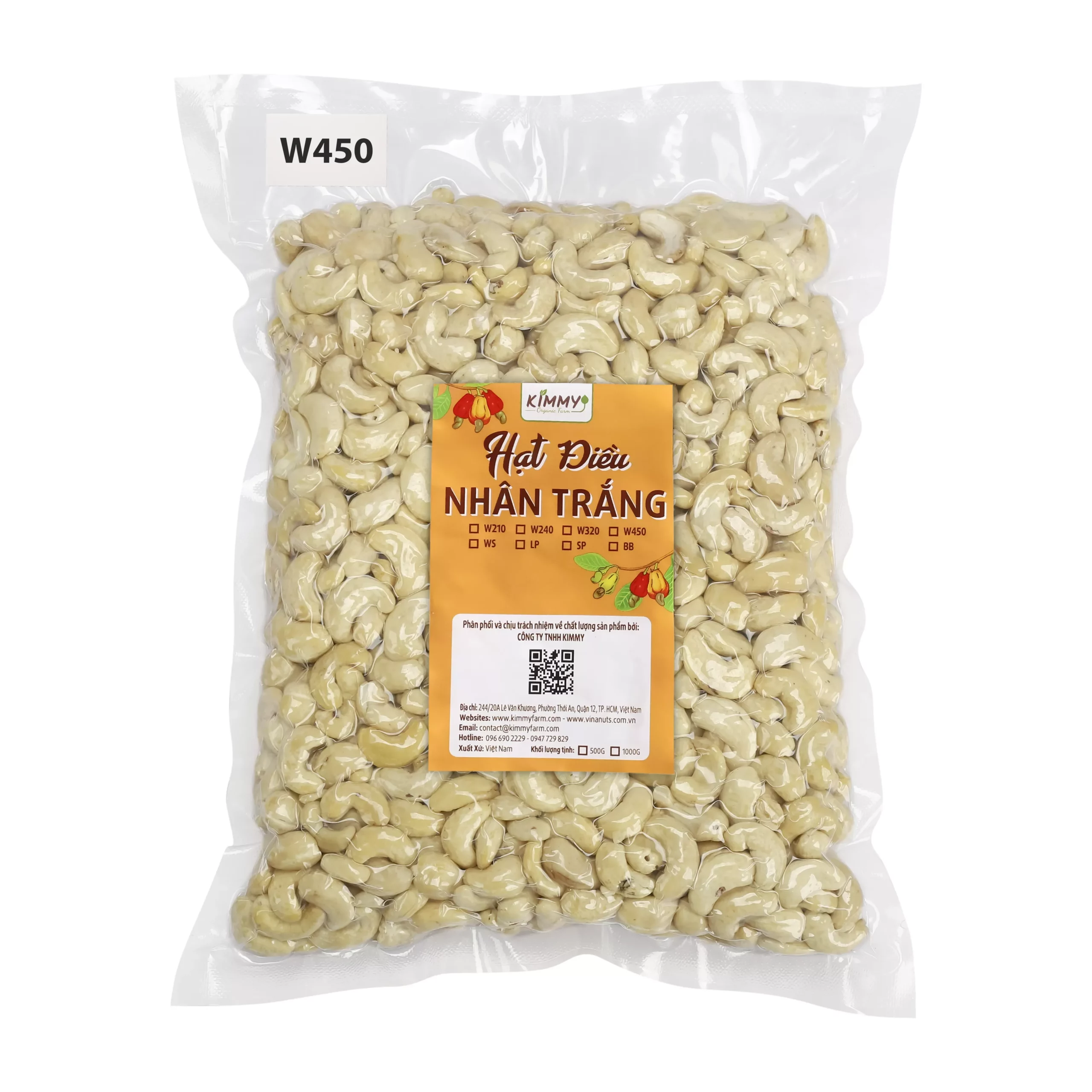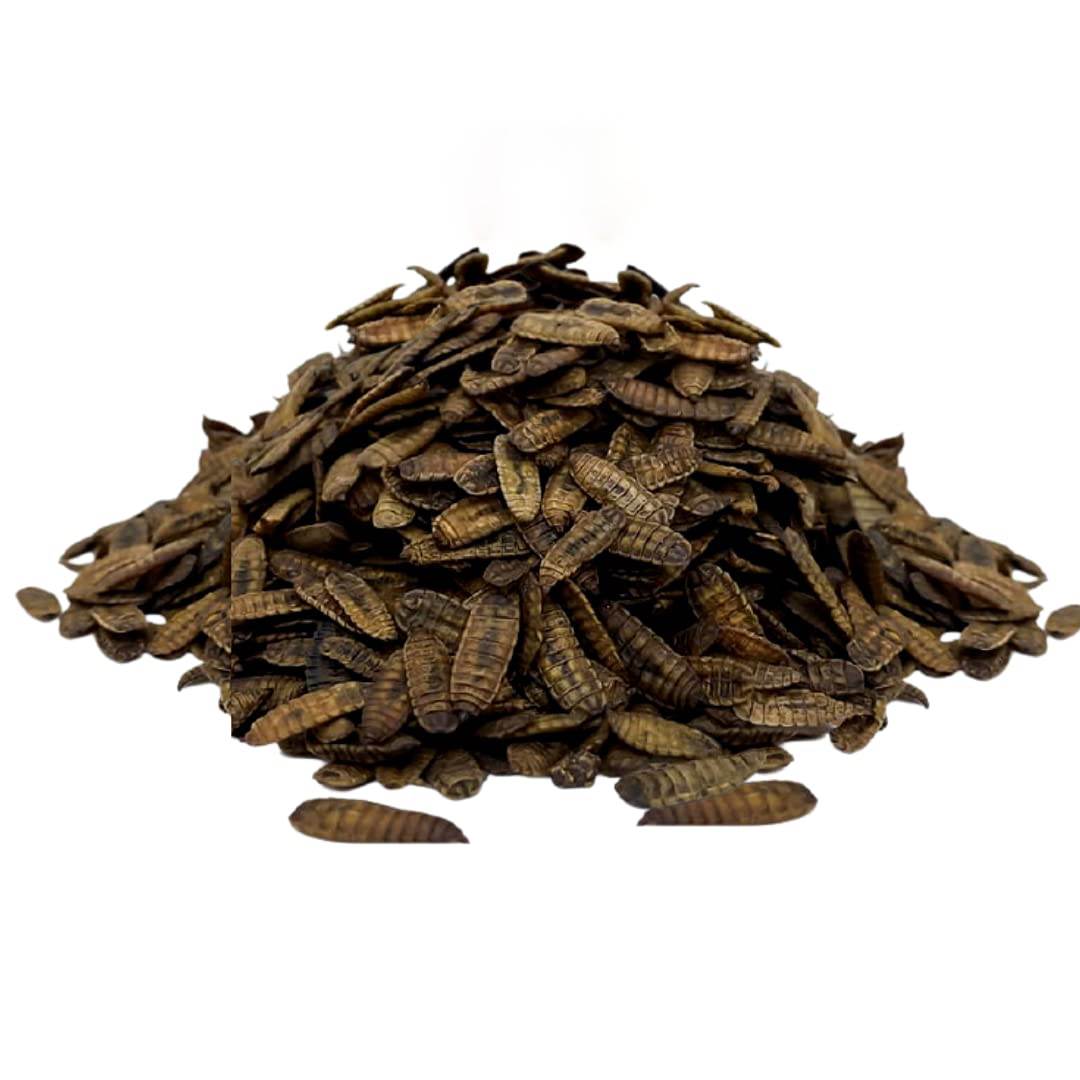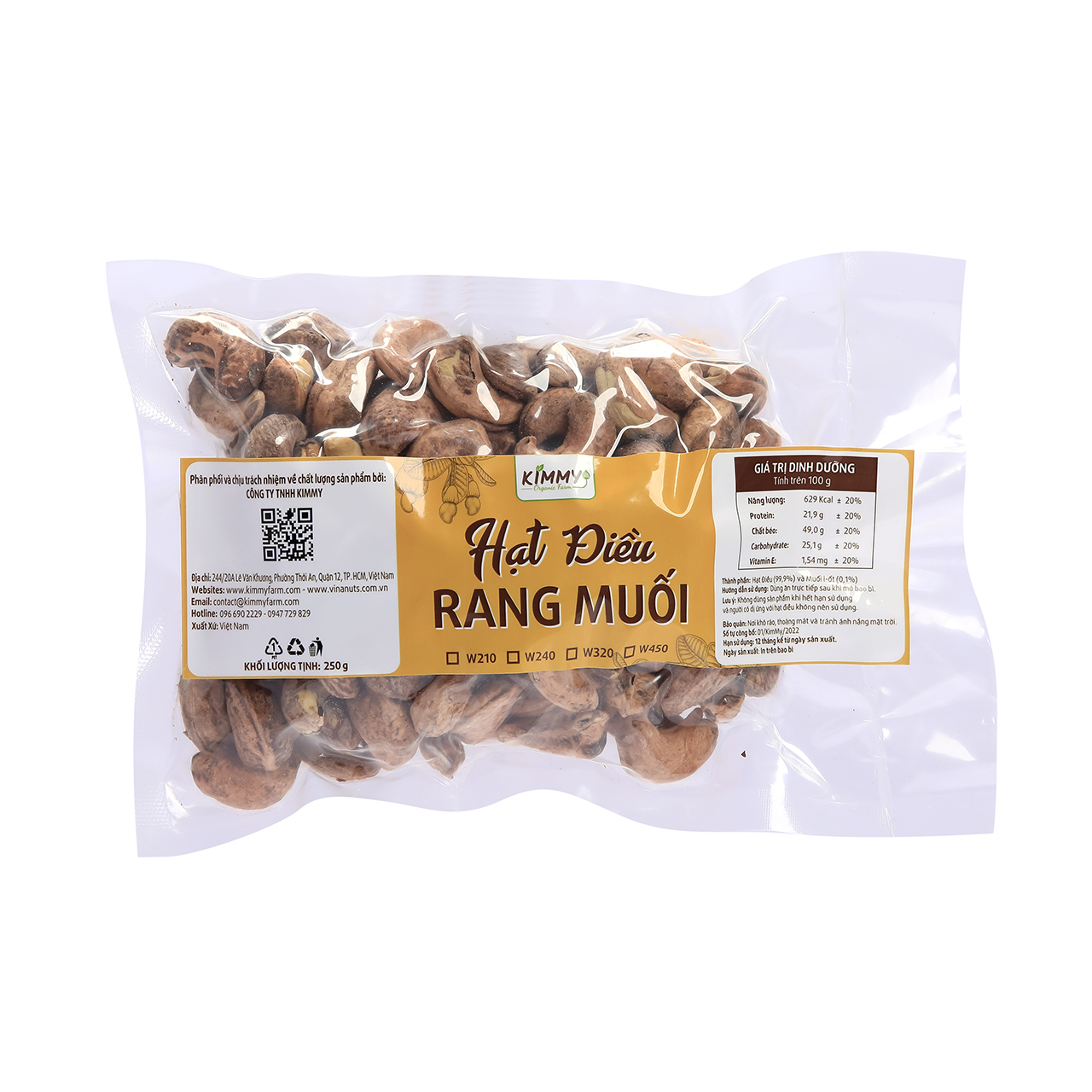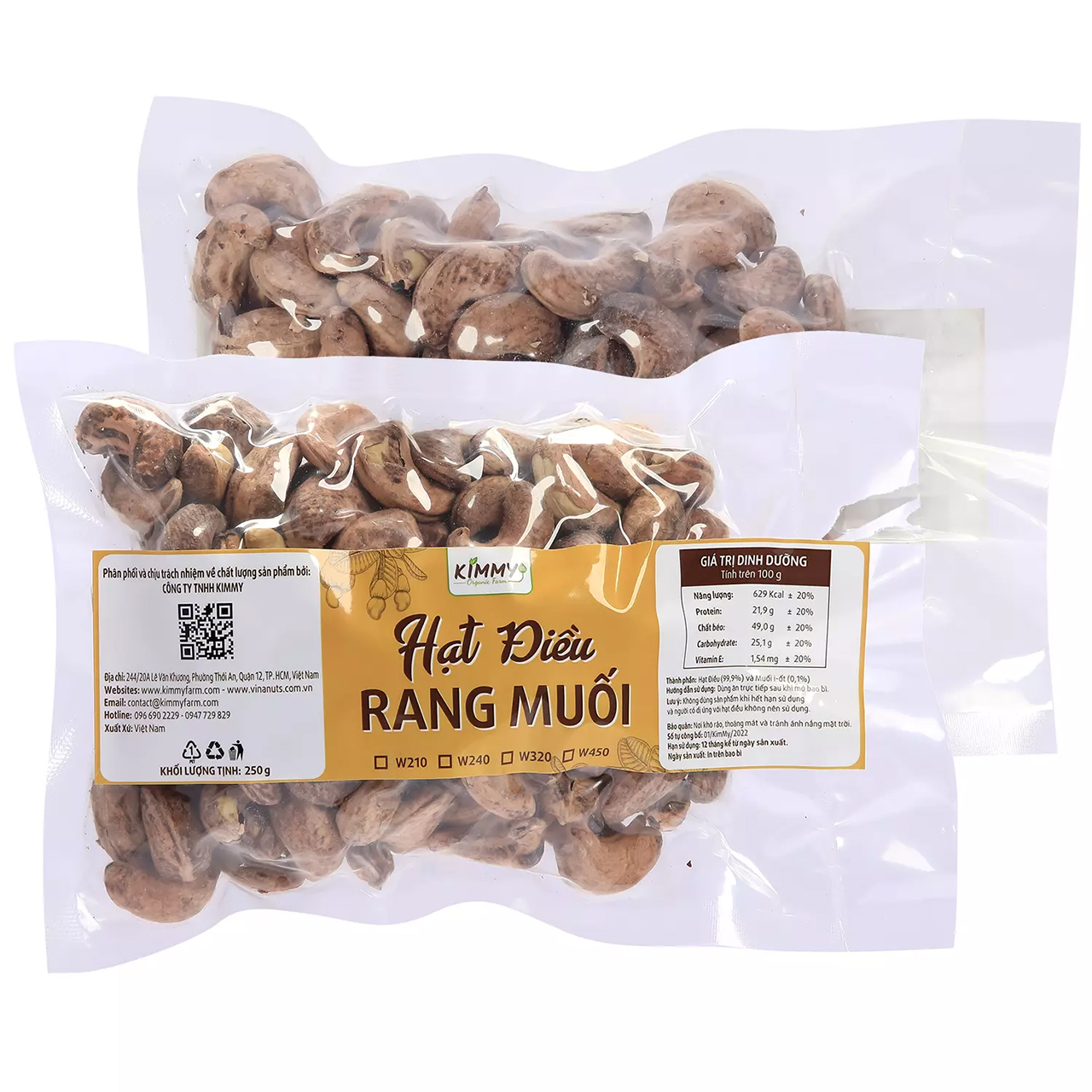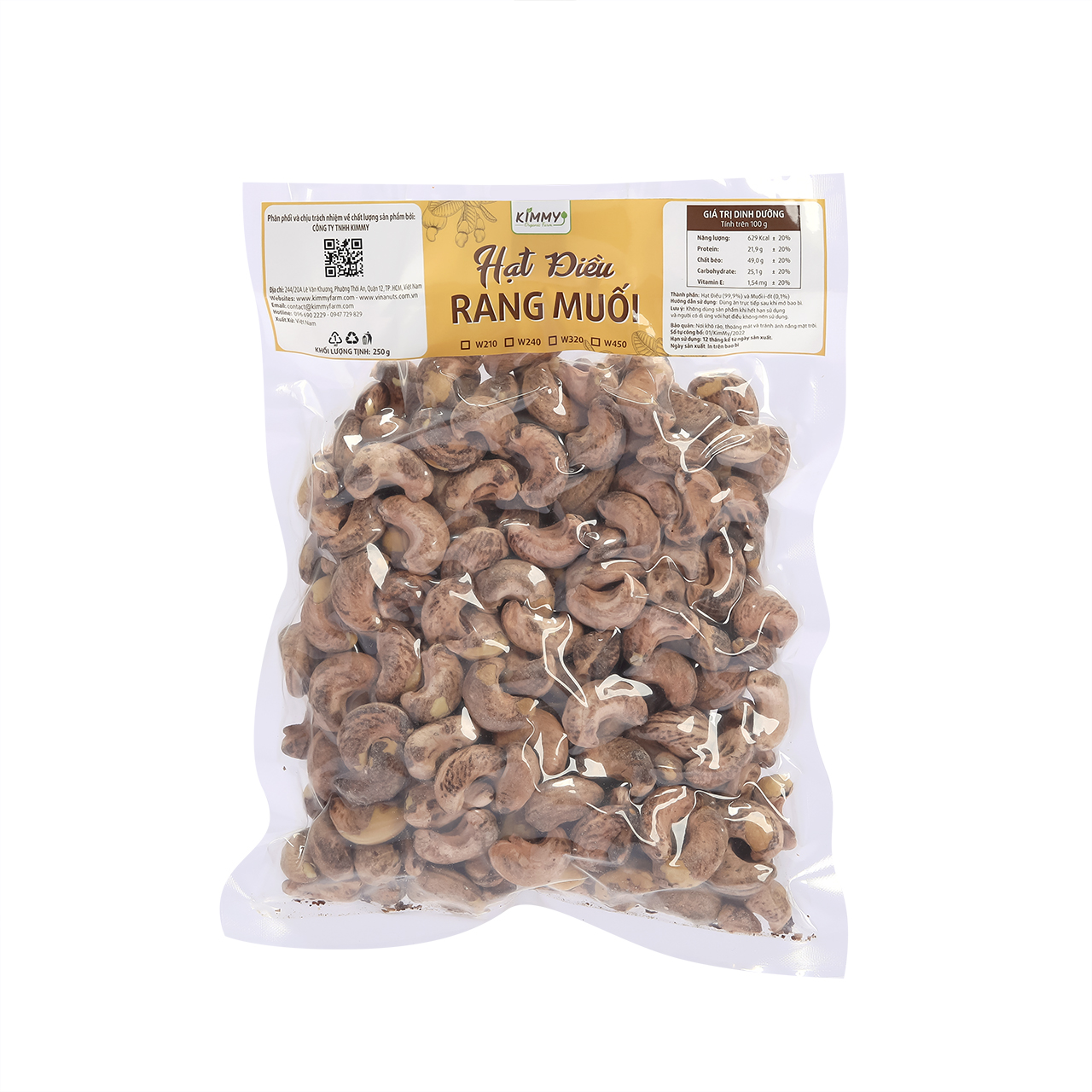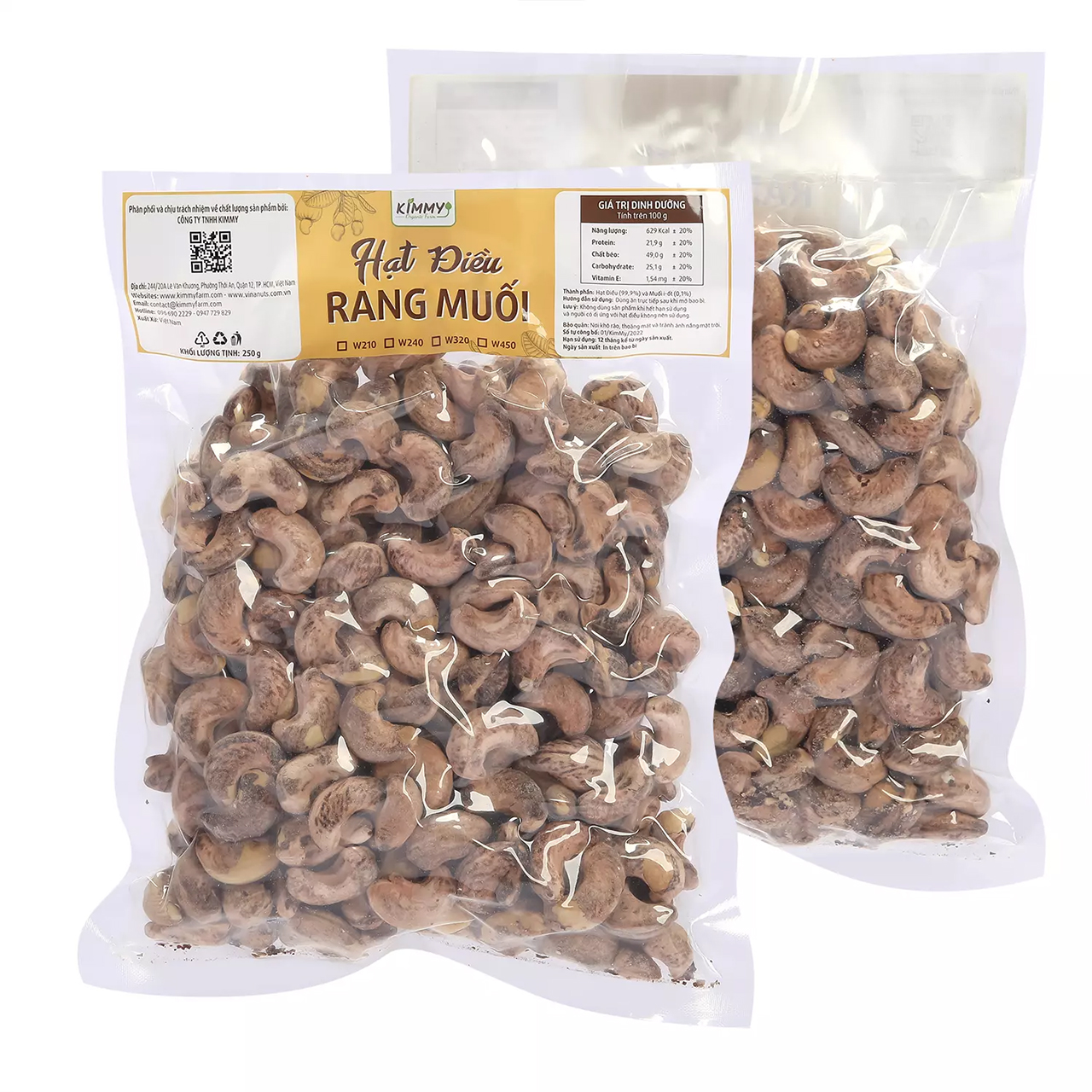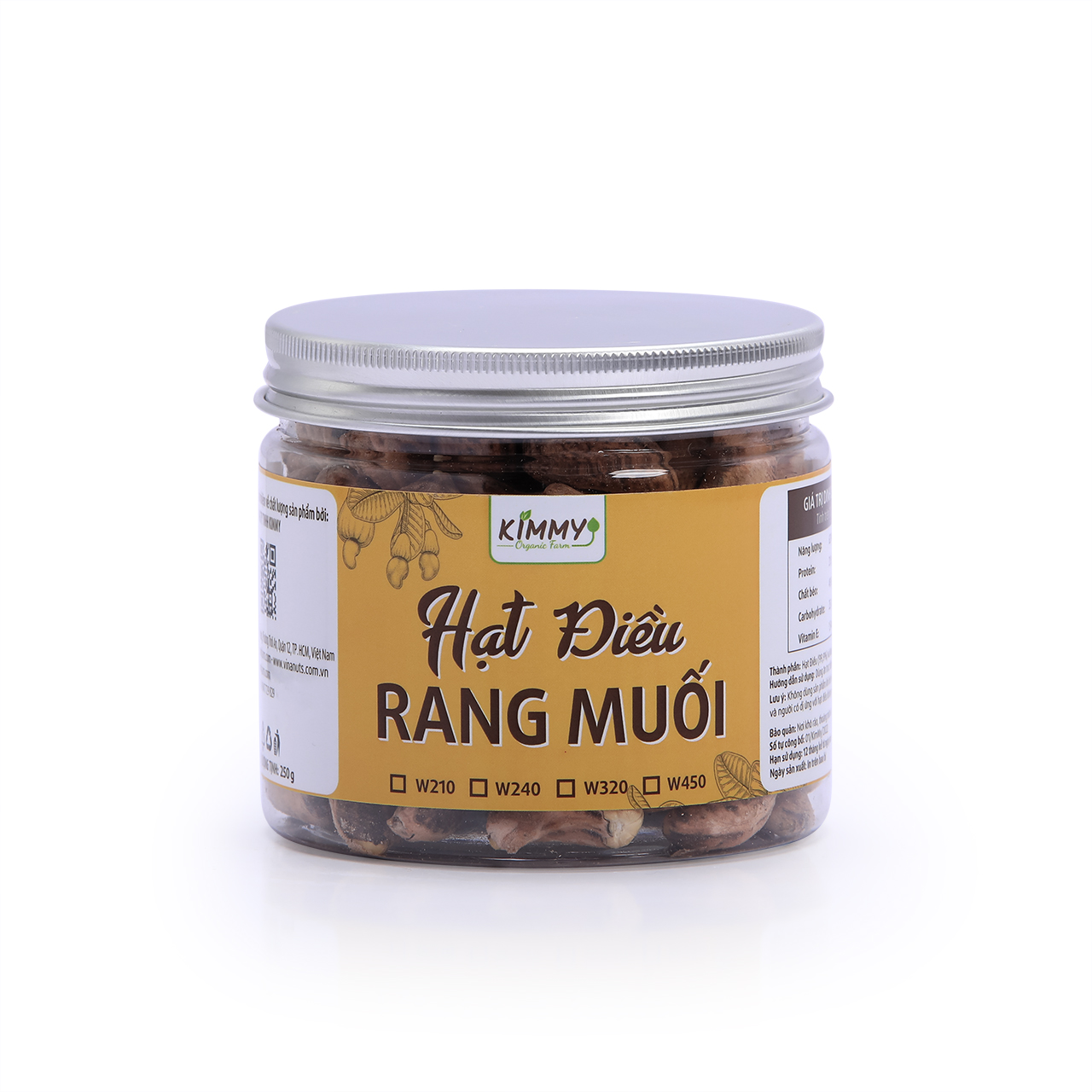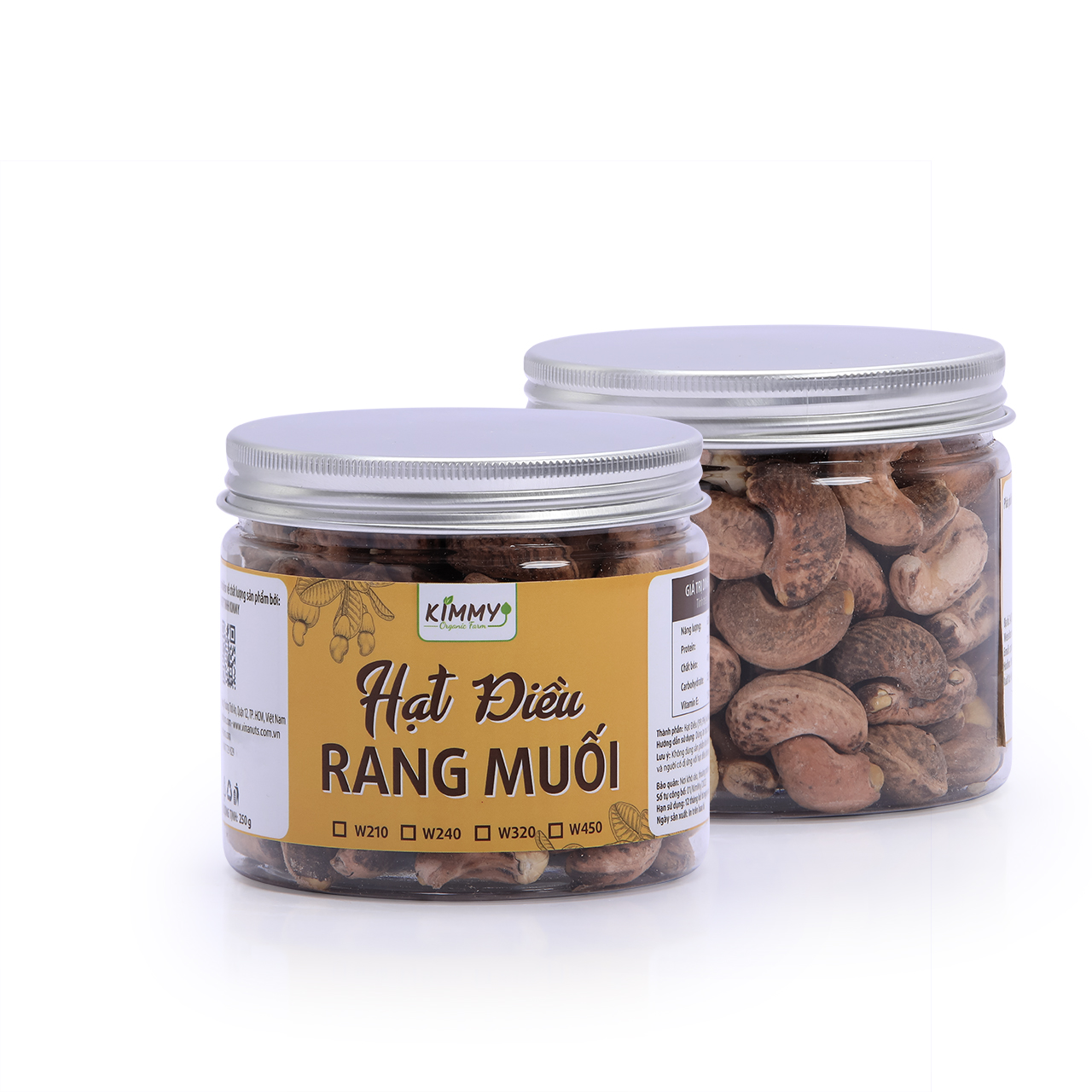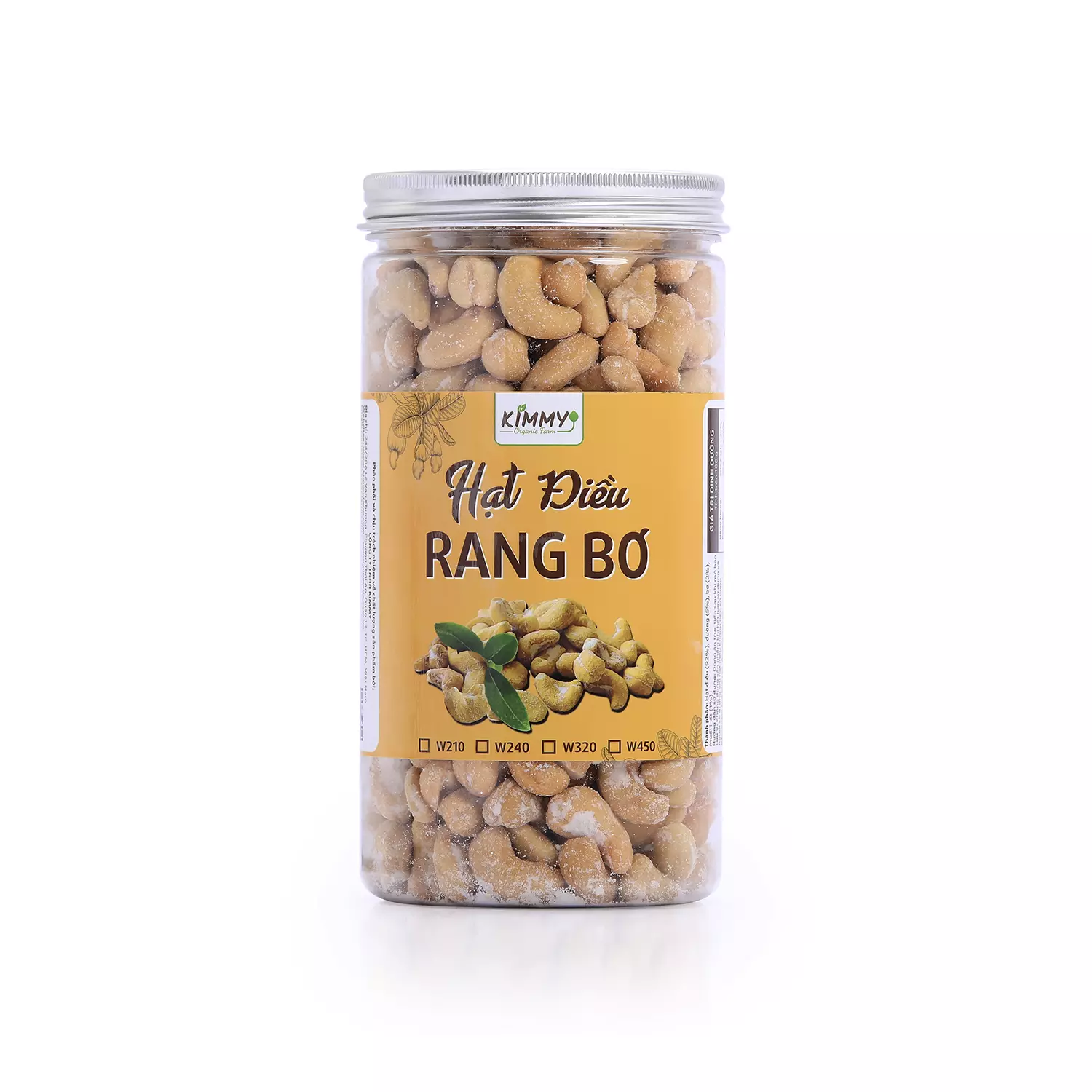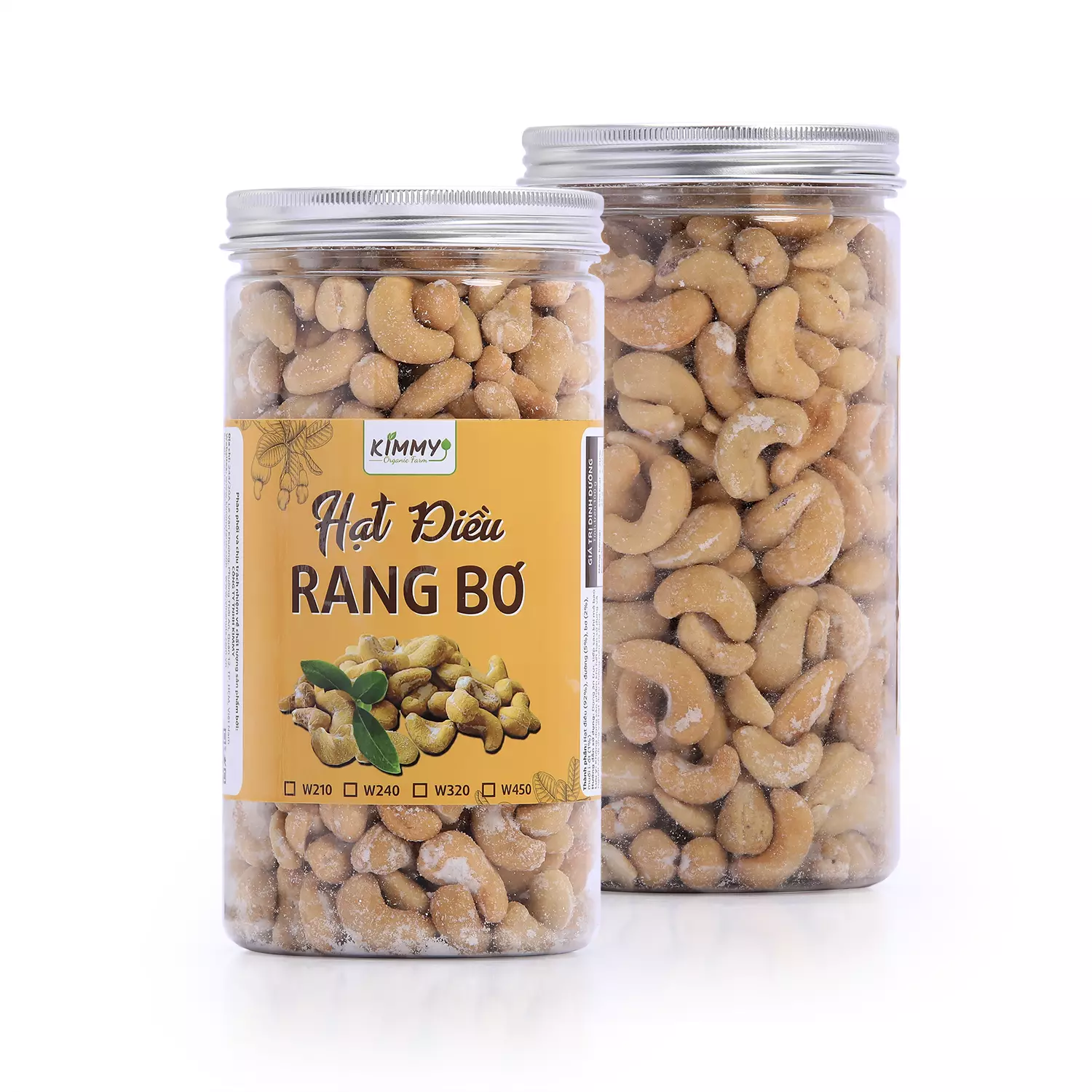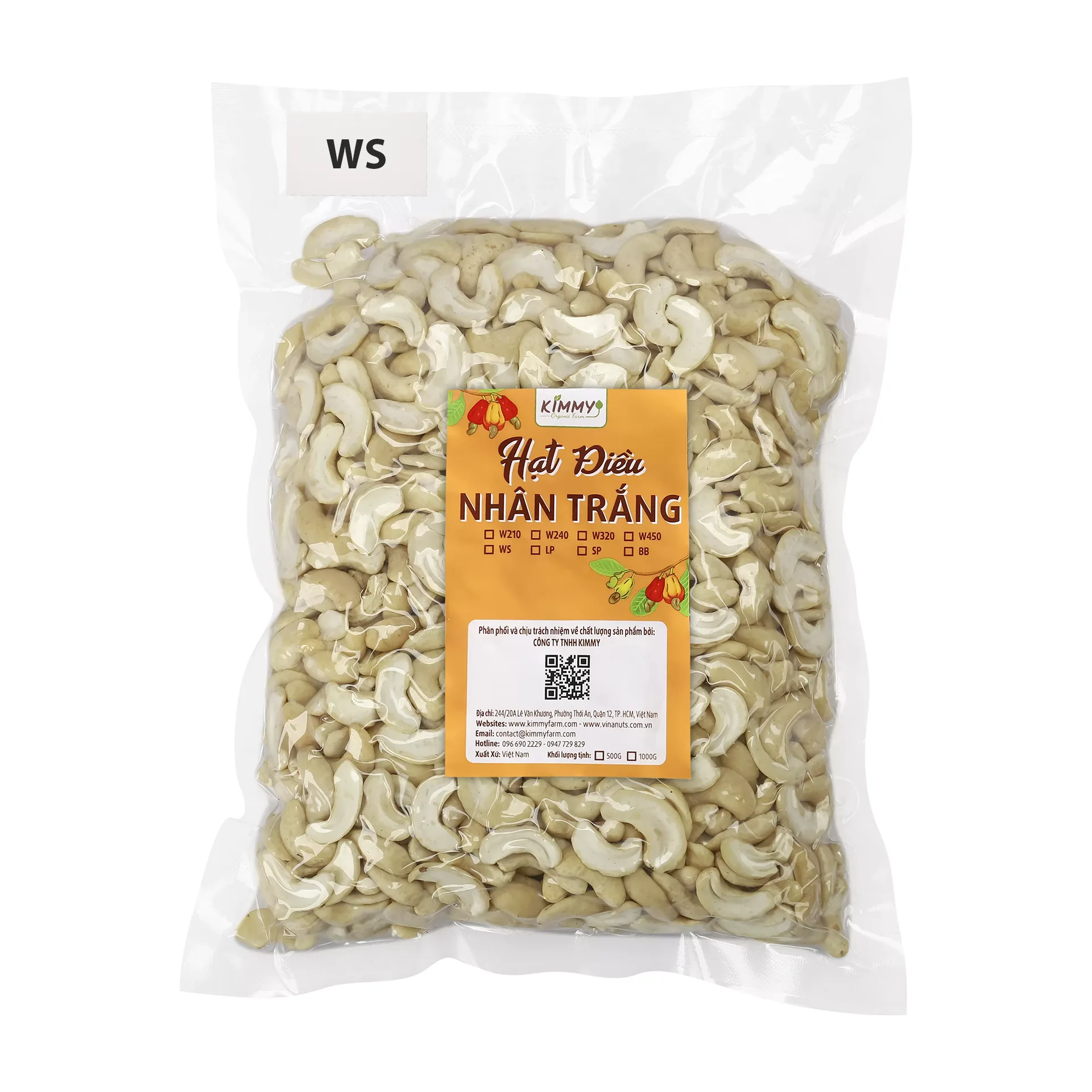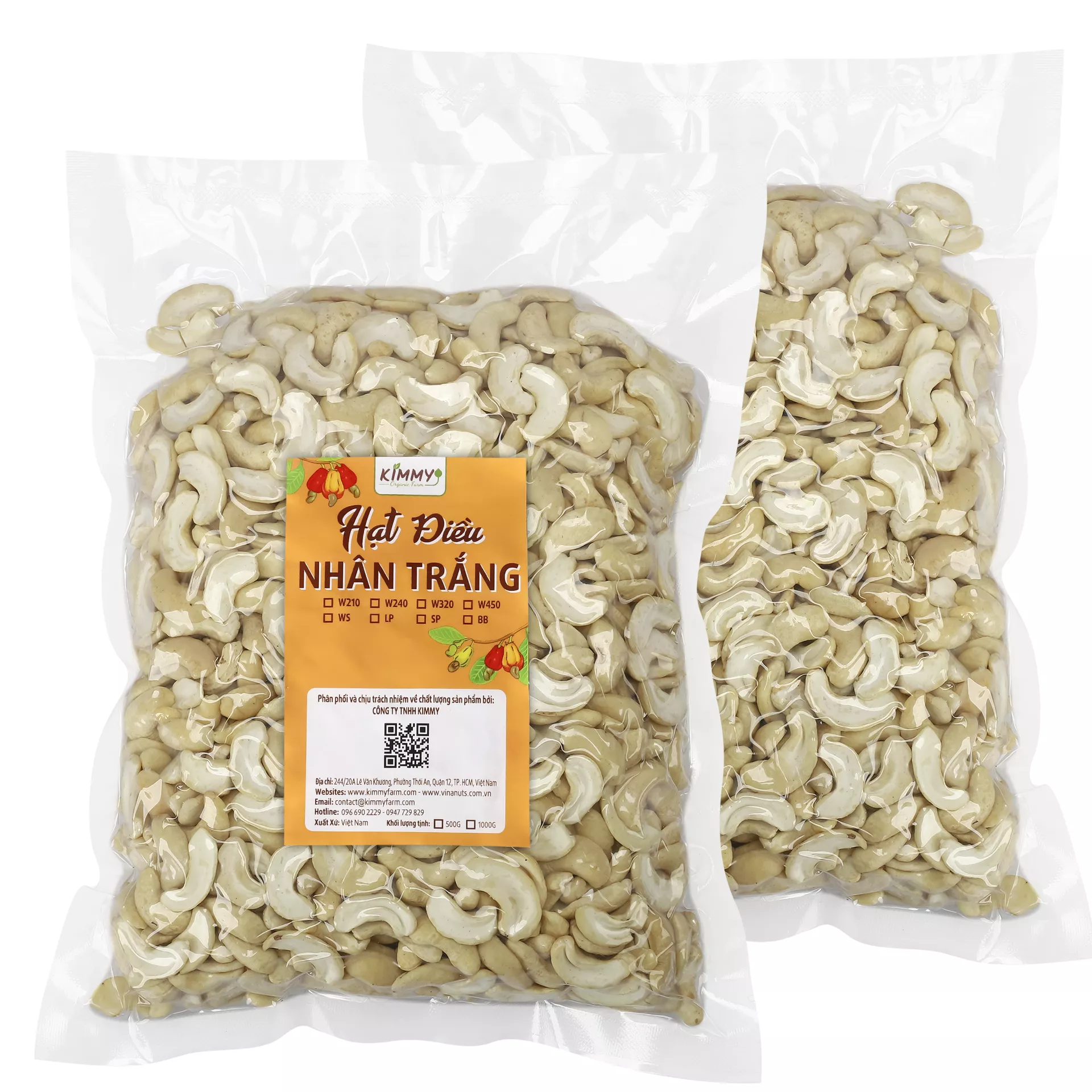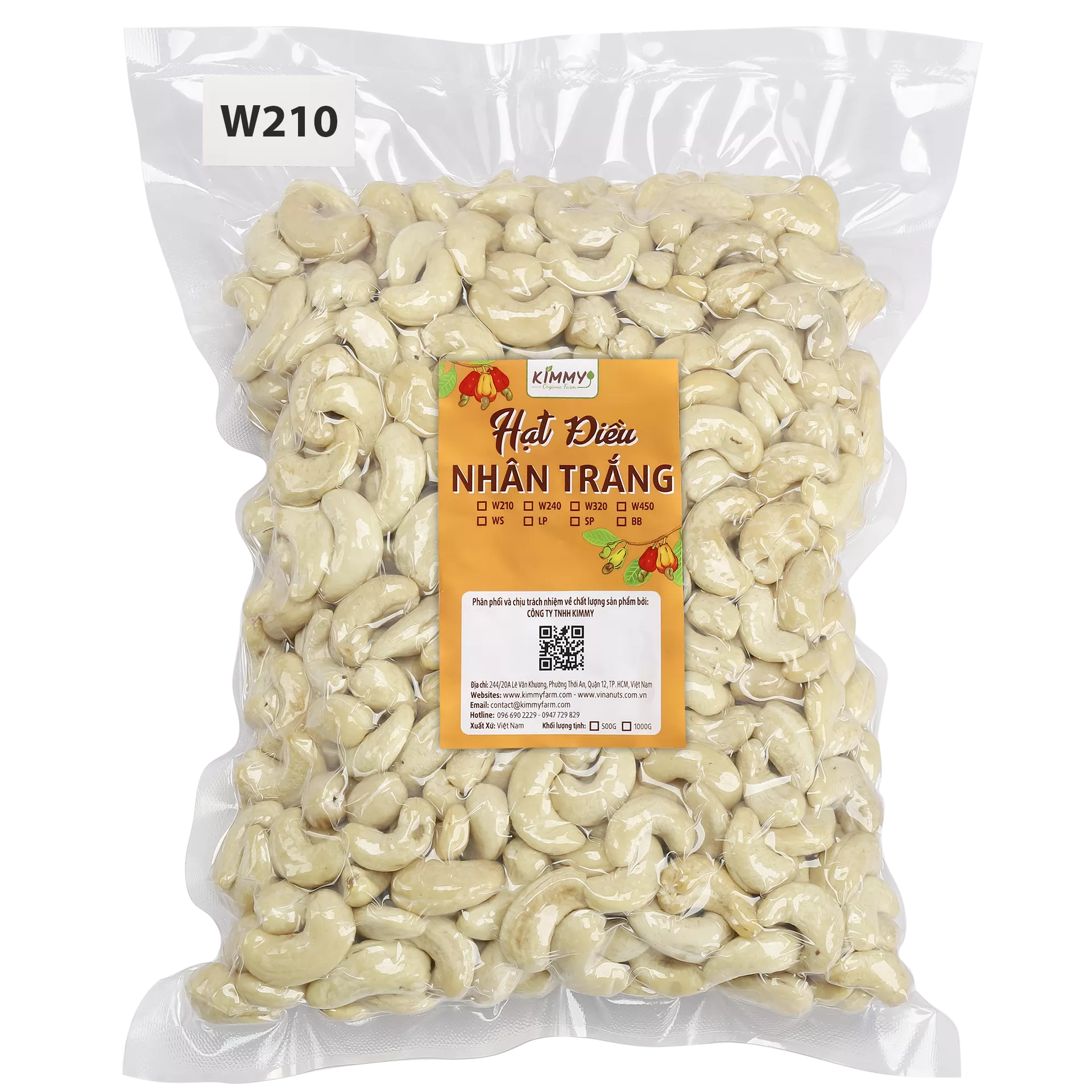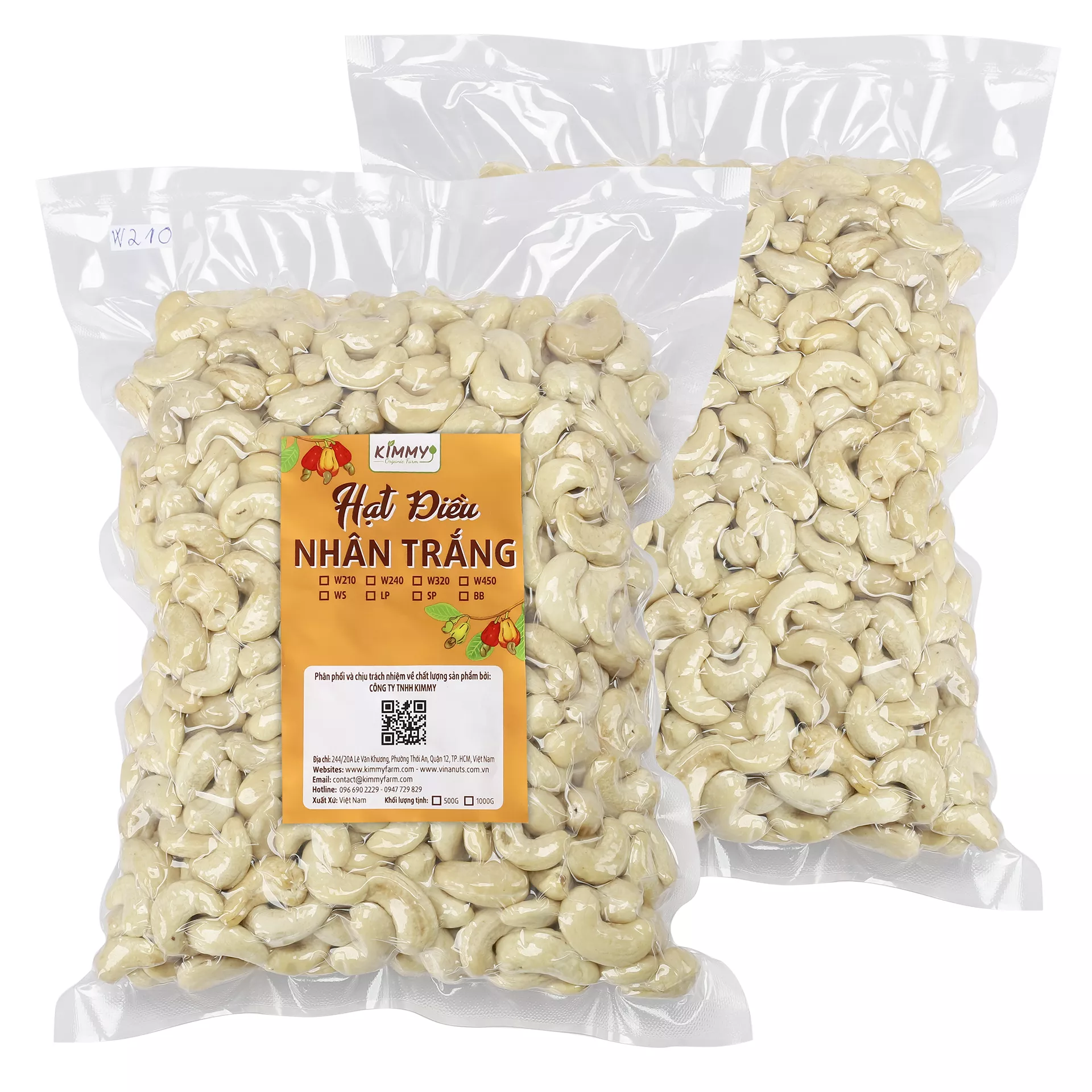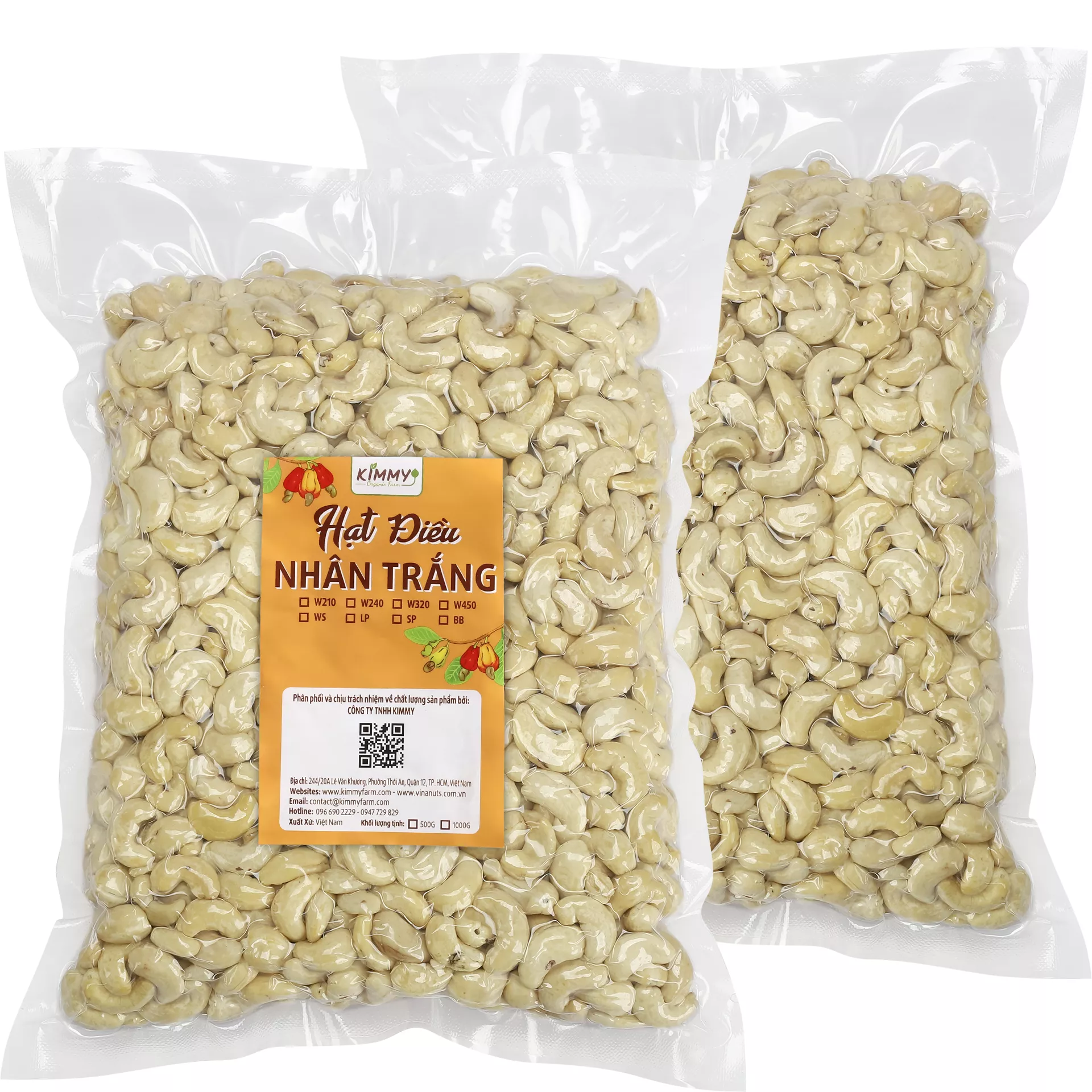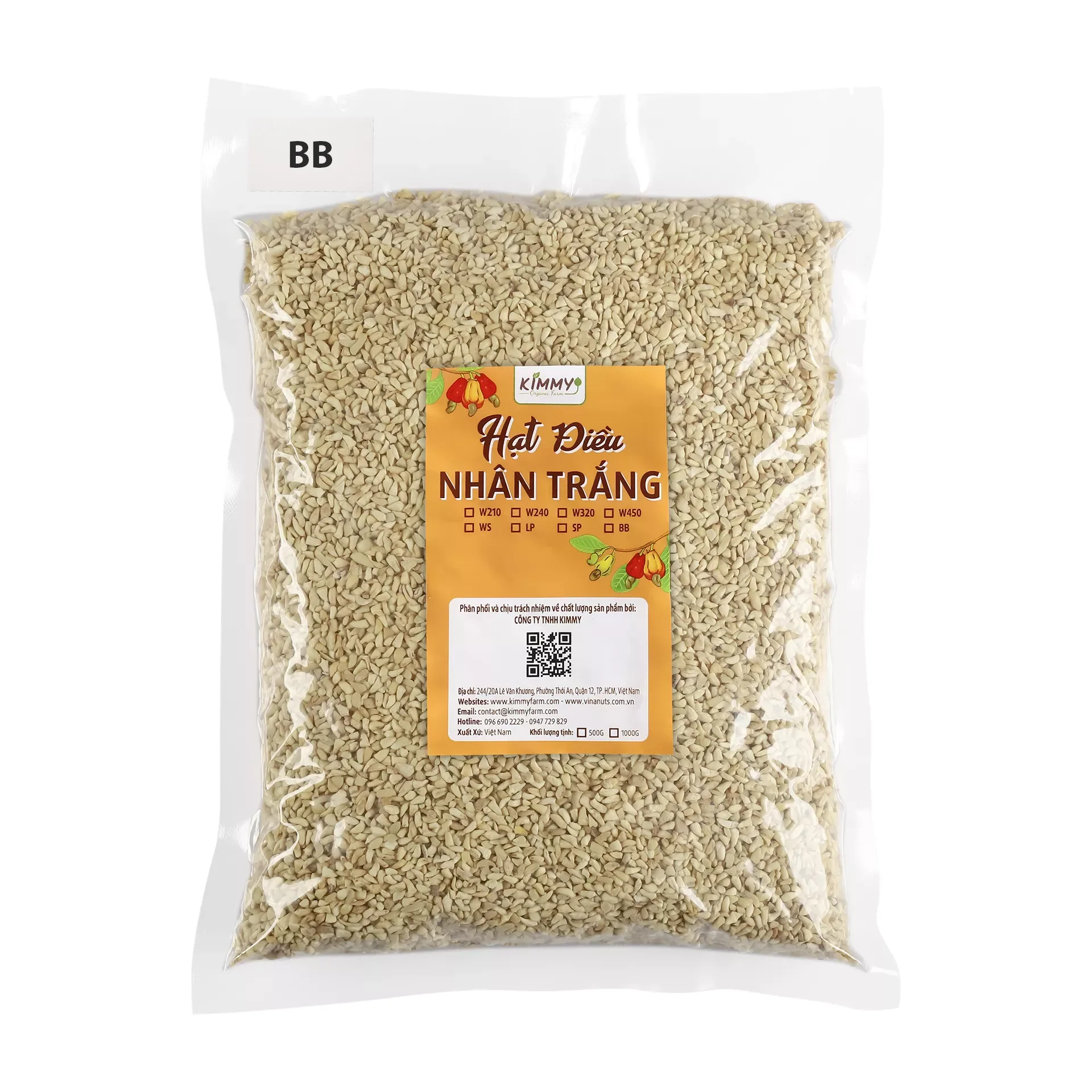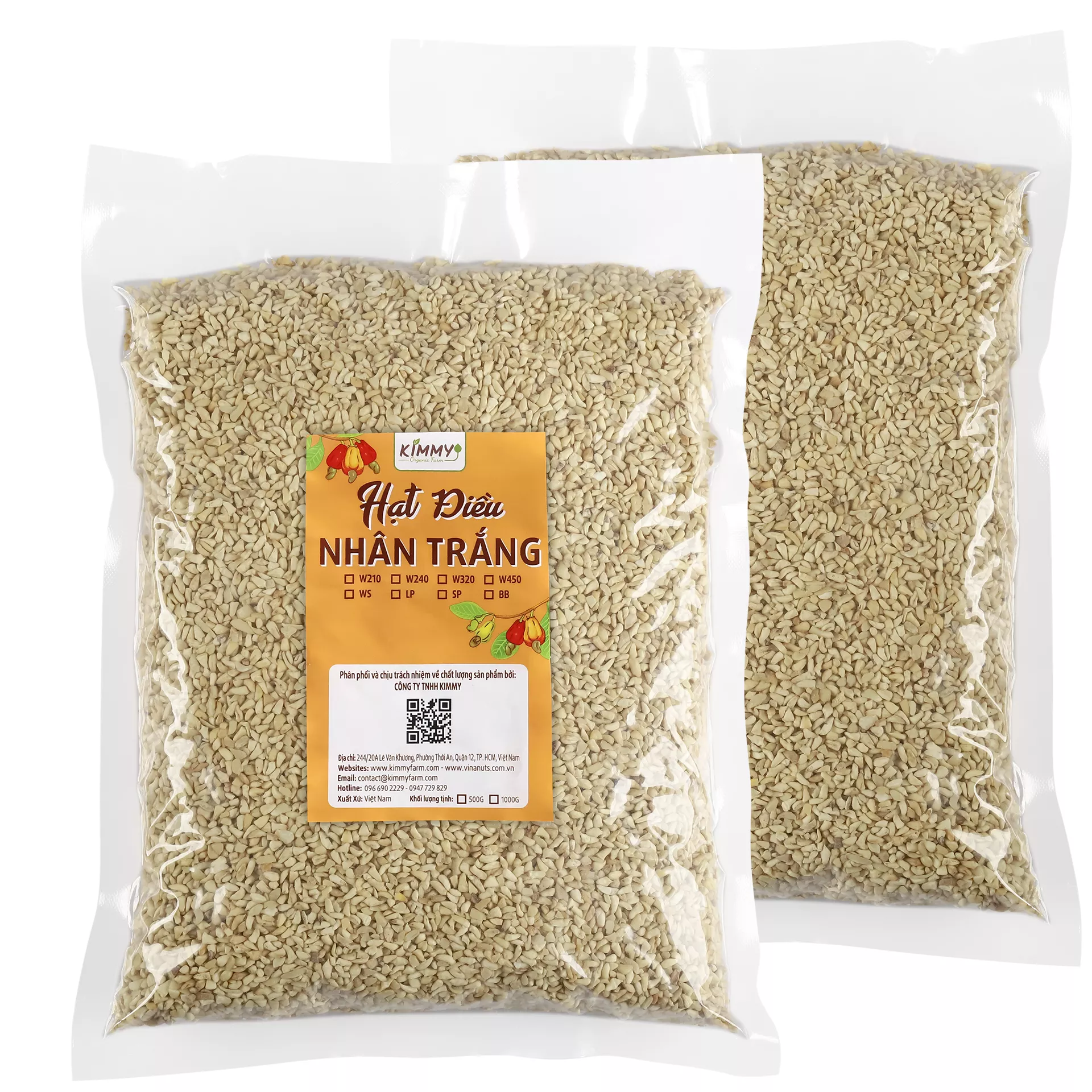If you have a poor digestive system, you want to use some natural foods that help improve digestion. However, you do not know which foods to use to help the digestive system better. we will suggest 6 types of nuts that help improve the intestines effectively that you need to give a try.
Cashew Nut Kernels:
Cashew nuts include the following nutrients: Calories, Protein, Fat, Carbohydrates, Fiber, Copper, Magnesium, Manganese, Calcium, Zinc, Phosphorus, Iron, Selenium, Vitamin B1, Vitamin K, and Vitamin B6… Cashew nut is the first nut that is evaluated to contain many nutrients that are good for the human digestive system. The fiber in cashews supports many benefits for the intestines as well as inhibits the development of digestive disease. However, not so that you can use cashews in excess in 1 day. Because if you eat too many cashews, it can lead to negative effects on the intestines. Should not eat too much, but need to have a healthy menu plan to get the maximum health effect from eating cashews.
=> Related Article: What Time To Eat Cashews Is Healthiest? – Kimmy Farm
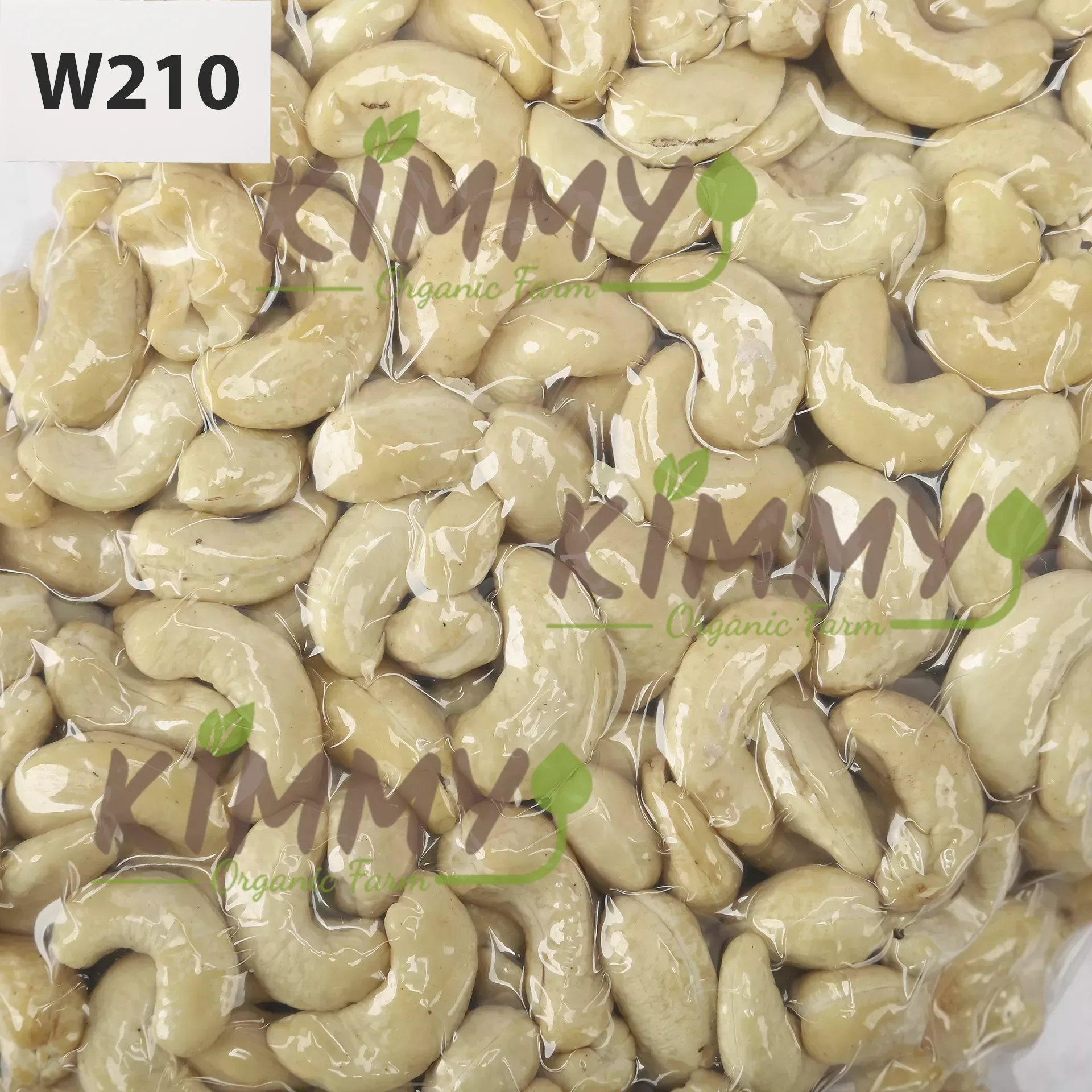
Cashew nut is the first nut that is evaluated to contain many nutrients that are good for the human digestive system.
Almond
Almonds include the following nutrients: calories, fat, carbohydrates, fiber, sugar, protein, calcium, iron, potassium, sodium, and vitamin E… Almonds aid digestion and prevent constipation, and they can also promote healthy bacteria in the gut that makes it easier for you to digest food quickly. Almonds have a hard texture that makes them difficult to digest. According to a study, raw almonds can lead to bloating, abdominal pain, and discomfort. Therefore, almonds need to be cooked before eating. In addition, consuming too many almonds can lead to digestive symptoms including stomach cramps, vomiting, and diarrhea.
=> Related Article: Cashew Butter Vs Peanut Butter And Which One Is Better?

Almonds aid digestion and prevent constipation, and they can also promote healthy bacteria in the gut
Chia Seeds
Chia seeds include the following nutrients: Calories, protein, fat, alpha-linolenic acid, carbohydrates, fiber, calcium, iron, magnesium, phosphorus, zinc, vitamin B1, and vitamin B3… Chia seeds contain a lot of nutrients and are high in Fiber, Which is necessary for the digestive system to work, The fiber component of chia seeds can act as a prebiotic (good bacteria live) to help your stomach produce good bacteria to help the digestive system work better. Like cashews, almond… excessive consumption of chia seeds can cause digestive problems. Eating too much fiber in chia seeds can cause problems like abdominal pain, constipation, diarrhea, gas, and bloating.
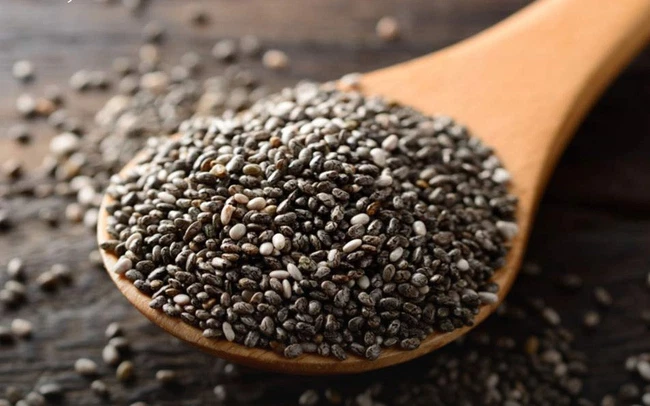
Chia seeds contain a lot of nutrients with very high Fiber content
Lotus seeds
Lotus seeds include the following nutrients: Protein, fiber, carbohydrates, B vitamins, vitamin C, vitamin A and vitamin E, manganese, magnesium, potassium, and sodium Lotus seeds are famous for being an extremely effective sedative that supports insomnia. In addition to having a sedative function, and supporting the nervous system, lotus seeds also contain abundant fiber content to help keep the digestive tract working effectively.
Lotus seeds can control the appetite to accelerate weight loss and also help detoxify the kidneys and liver, remove food wastes and prevent their accumulation in the body, which helps maintain system health. intestinal system. However, lotus seeds are generally well-digested by most people in small doses, so if consumed in large amounts, they can cause intestinal problems such as indigestion, constipation, and stomach cramps.

Lotus seeds are famous for being an extremely effective sedative that supports insomnia.
Walnut
Walnuts include the following nutrients: Calories, protein, carbohydrates, fiber, fat, calcium, iron, sodium, manganese, copper, iron, phosphorus, magnesium, and vitamin B6…. Consuming walnuts may benefit digestive health by increasing the number of good probiotic bacteria in the gut. Daily intake of walnuts as part of a healthy diet has been linked to increased levels of certain bacteria that may promote digestive health. If you are unfortunate enough to be allergic or overuse walnuts, it can cause stomach pain, gas and bloating, and even nausea or diarrhea.
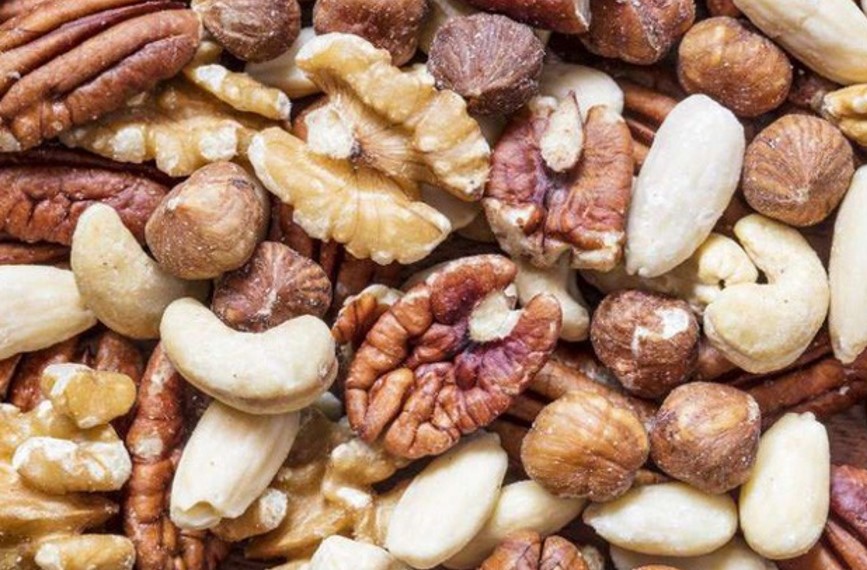
Daily intake of walnuts as part of a healthy diet has been linked to increased levels of certain bacteria that may promote digestive health
Brazil nuts
Brazil nuts include the following nutrients: Calories, protein, fat, carbohydrates, fiber, selenium, copper, magnesium, phosphorus, manganese, zinc, vitamin B1, and vitamin E... The fiber content in Brazil nuts supports the digestive system. Fiber facilitates easy movement in the digestive system helping to move food smoothly through and extract maximum nutrients. This also prevents stomach ulcers, constipation, bloating, and serious conditions like stomach cancer. Side effects of overconsumption include nausea, fatigue, diarrhea, irritability, garlic-like breath, hair loss, and nail abnormalities. There are also other cases such as rashes or lesions on the skin, mottled teeth, discomfort, and abnormalities in the nervous system.
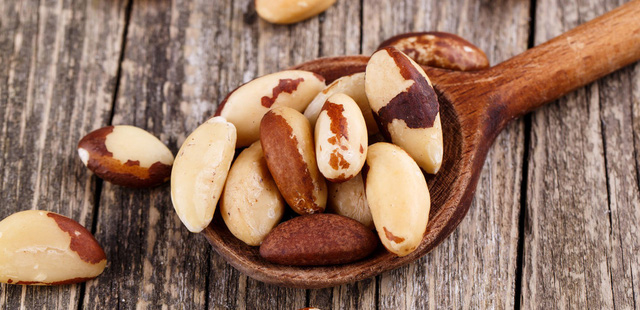
The fiber content in Brazil nuts supports the digestive system and prevents stomach ulcers, constipation, bloating, and serious conditions like stomach cancer.

A brand specializing in the production and export of agricultural products in Vietnam. We have a black soldier fly farm in Tay Ninh and a cashew growing area in Binh Phuoc. The main export products of the company are: cashew nuts, cashew nut kernels, black soldier fly, frozen seafood, shrimp, prawns, catfish… from Vietnam.

